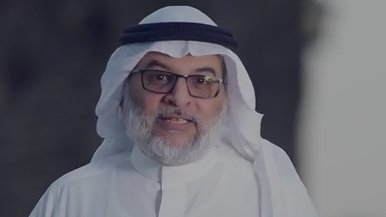
A Saudi court sentenced the prominent academic and former executive director of AlAndalus Schools, Ibrahim Al-Harithi, to five years in prison.
According Prisoners of Conscience, twitter account concerned with the conditions of detainees in the Kingdom, the ruling came after a secret trial that was held for Al-Harithi whose family was surprised by the news, as they did not know anything about his trial.
The ruling came despite the fact that Al-Harithi’s family had recently received promises from influential figures in the Saudi regime that he would be released soon.
Al-Harithi has been detained since 11 September 2017, among a number of other academics, preachers, and prisoners of conscience.
As part of the series of human rights violations that the Saudi authorities are pursuing against political detainees in their prisons, the Specialized Criminal Court last week committed a new legal violation as it set aside all granted acquittals to former detainees whose sentences have expired.
To their shock, the Court informed all prisoners of conscience of the issuance of new prosecution regulations and new sessions for their retrial.
In the meantime, the families of political detainees are in a state of anxiety over the interruption of contact with their relatives for months, rising concerns about their lives.
The Geneva-based Euro-Mediterranean Human Rights Monitor expressed its concern about the Saudi authorities’ continuing policy of psychological pressure on prisoners of conscience in their prisons and their families by denying them visits and regular communication.
Human rights circles launched a new campaign on social media demanding the release of prisoners of conscience in the Kingdom in light of the risk of the outbreak of the Coronavirus in the prisons, and the deterioration of the health status of dozens of detainees.
The campaign aims to press for the release of all arbitrary detainees before it is too late and COVID-19 had spread in the cells.
The Kingdom arrests hundreds of citizens and residents, on the grounds of disseminating political opinions and human rights demands.
Prisoners of conscience in Saudi prisons are subject to deliberate medical neglect while not being allowed to take medicines regularly, as is the case with Salman al-Awda and Awad al-Qarni.
Since Crown Prince Mohammed bin Salman toke office, he has transformed the Kingdom’s prisons into human slaughterhouses and mass graves.
Many prisoners of conscience died successively in Saudi prisons including, Sheikh Fahad Al-Qadi, Sheikh Suleiman Al-Duwaish, Sheikh Ahmed Al-Ammari, writer Turki Al-Jasser, Major General Ali Al-Qahtani, the popular artist Muhammad Bani Al-Ruwaili, Hassan Al-Rabeh, Sheikh Saleh Al-Dumairi, Ahmed Al-Shaya, Bashir Al-Mutlaq, and Muhammad Rasb Al-Hasawi.
It is believed that there are others who may have passed away and the Saudi authorities never did not reveal their fate.